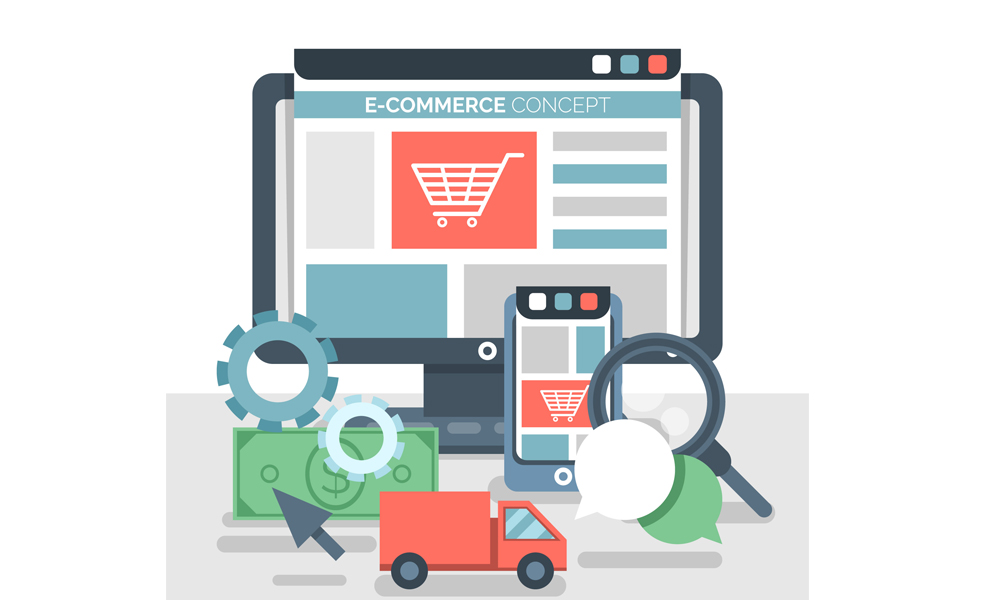The e-commerce industry is growing at a promising rate, leading many entrepreneurs to establish stores to sell products or services to customers online. But to enter the e-commerce business, you need to build a website, and when it comes to that, there are two options: hiring a web developer, which can be expensive, or using an already-built platform, which saves time and money on website development.
Choosing the right platform for your business can be challenging due to the numerous options offering similar functionalities. In this article, we are going to talk through e-commerce platforms and discuss how you can choose the right one for your brand or business.
What is an e-commerce platform?
An e-commerce platform is a software tool that simplifies the process of creating an online storefront. A competent e-commerce platform can offer a convenient dashboard with all necessary tools, including drag-and-drop builders, product listings, shopping carts, checkouts, and shipping options. So selecting the right platform is crucial for your online retail business, as it provides the best foundation for your online sales success. Some platforms even offer shipping options.
Key considerations for selecting an e-commerce platform
Choosing an e-commerce platform for your business is a big decision. E-commerce platforms cater to various needs and types of businesses, from small startups to large enterprises. They can be budget-friendly or require technical expertise.
For example, with a self-hosted e-commerce platform, you need to deal with installations and manual software updates, whereas a cloud-hosted e-commerce platform takes on the responsibility of managing your website’s uptime. There are many platforms that offer similar solutions and services, so here we will list factors you shouldn’t miss while choosing an e-commerce platform:
Pricing and size of your business
E-commerce platforms come at different prices, and based on the size and needs of your business, you might be able to select one! If you are just getting started, you might be looking for a platform that is no-cost or low-cost. But the limitations of a platform shouldn’t stop your business from expanding either. Woocommerce and Shopify are some of the best options out there if you want a budget-friendly platform with room to grow.
Woocommerce and Shopify are very sensible options for small businesses as well. Opencart and PrestaShop are some of the other popular options for small businesses. But as your business expands, you’ll need an e-commerce platform that can handle high sales volumes. Some platforms, like Magento, offer free basic-level plans. However, to maximise the benefits of larger platforms, you may need to hire a developer and an IT professional for expert help and to apply changes to your online store. Consider these costs when choosing an enterprise-level e-commerce platform. Apart from Shopify Plus, which is a popular choice, there are platforms like NopCommerce, BigCommerce, and drag-and-drop website builders like Wix to choose from.
Security
Security is a big concern for customers when it comes to shopping on e-commerce platforms. To ensure customer trust and secure financial information, choose an e-commerce platform with essential security features like PCI compliance, SSL certificates, fraud prevention, and data backups.
Conduct security audits to identify potential risks and make the necessary changes. Object-oriented programming languages with embedded security protocols are always recommended. Popular platforms like Magento and Shopify use two-factor authentication, while security plugins can provide additional safety for platforms lacking multi-factor authentication.
Web design
We cannot, by any means, ignore the large segment of mobile-using customers. E-commerce stores must cater to mobile customers by providing easy access and purchasing options. Having separate desktop and mobile sites can increase costs and resource consumption. A cost-effective alternative is responsive web design, which automatically adjusts a site to the screen sizes of various devices.
Platforms like Magento, WooCommerce, and Shopify offer responsive themes and templates. Shopify also allows users to edit HTML and CSS and change element size, positioning, and colours, making it a convenient and cost-effective solution for e-commerce stores.
SEO elements
SEO (search engine optimization) is crucial for your store’s visibility in search engines. Choose a platform with SEO-related features like meta descriptions, blog creation, customer reviews, and Google site map support to improve your site’s SEO rankings. Onveos, Magento, OpenCart, and Woocommerce are excellent SEO-friendly e-commerce platforms, with Onveos offering independent SEO elements and the others strengthening inbound marketing initiatives.
Scalability
As your e-commerce business grows, it’s crucial to choose a platform that can scale up to your needs without exorbitant fees for additional features and storage, ensuring your business can meet its growth needs, so choose wisely!
Technical support and integrations
Prompt technical assistance from your e-commerce platform is essential in order to avoid unexpected situations like software outages, server downtimes, and server crashes that can impact customer access, which can cause a loss of revenue and a negative brand image. So ask the right questions to customer service before committing to a platform.
Another essential part of running an e-commerce business is integrations and plugins for key functionalities like tax calculators, payment gateways, accounting, email marketing tools, and shipping apps. So it’s crucial to choose a platform that has an active community that continuously improves and resolves issues with it and supports these integrations and plugins relevant to your business.
Multiple sale channels support
An e-commerce store can boost revenue by offering products or services across various selling channels like Facebook Messenger, Instagram, and Amazon.
Suppose you are a business based in Dubai. Your marketing partner, a social media agency in Dubai, will be running all the advertising campaigns on various social media platforms. It will be unproductive if your e-commerce platform does not support those channels.
So choosing a platform that supports multiple selling channels is also a point to note. Shopify, WooCommerce, BigCommerce, Magento, and PrestaShop are platforms that support multiple selling channels. On these platforms, your inventory data management is centralised, which allows you to generate diverse selling choices in online marketplaces and increase revenue from them.
Find the ideal e-commerce platform for your business
Now that we have covered almost all of the main factors to consider while choosing an e-commerce platform for your business, it is time for introductions.
We are Apt Digital, a leading digital marketing agency in Dubai. So if you have any further queries about e-commerce website development or need assistance, feel free to contact us.
To choose an eCommerce platform for your business, research competitors and online businesses using similar platforms. BuiltWith.com is a useful tool for this research, as it displays all the software running a shopping site, including the eCommerce platform.
At the end of the day, the choice of eCommerce platform depends on your company’s size and unique needs, and you may need to migrate as your business grows. Remember that research and planning are crucial for informed decisions, and an intuitive, user-friendly interface is essential for a successful platform!

